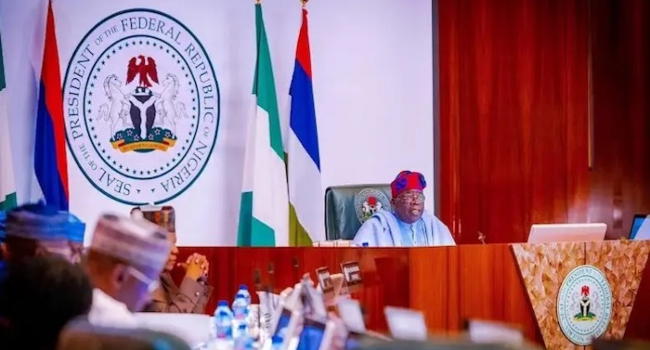The Federal Executive Council (FEC) has approved ₦68.7 billion for key electricity projects in universities and teaching hospitals across Nigeria.
Minister of Power, Adebayo Adelabu, disclosed this after Thursday’s FEC meeting, chaired by President Bola Tinubu at the State House, Abuja.
He said the projects reflect the government’s resolve to ensure a steady electricity supply in vital sectors like health and education.
The university project involves engineering, procurement, and construction under the Energising Education Programme, led by the Rural Electrification Agency.
“This initiative aims to ease the energy cost burden on universities and hospitals by providing reliable, good-quality electricity,” Adelabu stated.
He described the current electricity situation in many institutions as “disturbing” and a threat to effective service delivery.
“The lack of stable power supply has created crisis situations in some schools and hospitals, with institutions unable to afford local electricity,” he explained.
He added that blackouts and occasional industrial actions have occurred due to the unreliability of power.
Adelabu stated that similar renewable energy projects have already been implemented in some institutions, with support from the World Bank.
Completed projects include the University of Abuja, the University of Niger (12 MW solar), and Usmanu Danfodiyo University, Sokoto (8 MW).
Others are the Nigerian Defence Academy (2.6MW) and the Federal University of Agriculture, Makurdi, which also uses solar power.
The newly approved funding will support electrification in eight additional universities and teaching hospitals nationwide.
These are: University of Lagos; Ahmadu Bello University, Zaria; and Obafemi Awolowo University, Ile-Ife.
Also included are the University of Nigeria, Nsukka; the University of Ibadan, with its University College Hospital; and the University of Calabar.
The Federal University, Wukari, is also among the new beneficiaries.
Adelabu said these new projects are expected to be completed within seven to nine months.
“This is another step to ensure our universities enjoy uninterrupted electricity. Our institutions will never be the same again,” he noted.
The second project approved targets Agricultural Centres of Excellence in rural areas using solar energy technology.
“This goes beyond lighting homes; it supports productive use of solar-powered equipment in rural areas,” Adelabu said.
He explained that the aim is to light up rural homes and power agro-processing businesses using solar systems.
The initiative will deliver solar-powered processing tools to small and micro agricultural enterprises in underserved communities.
The post FEC approves ₦68.7bn for power projects appeared first on Vanguard News.

